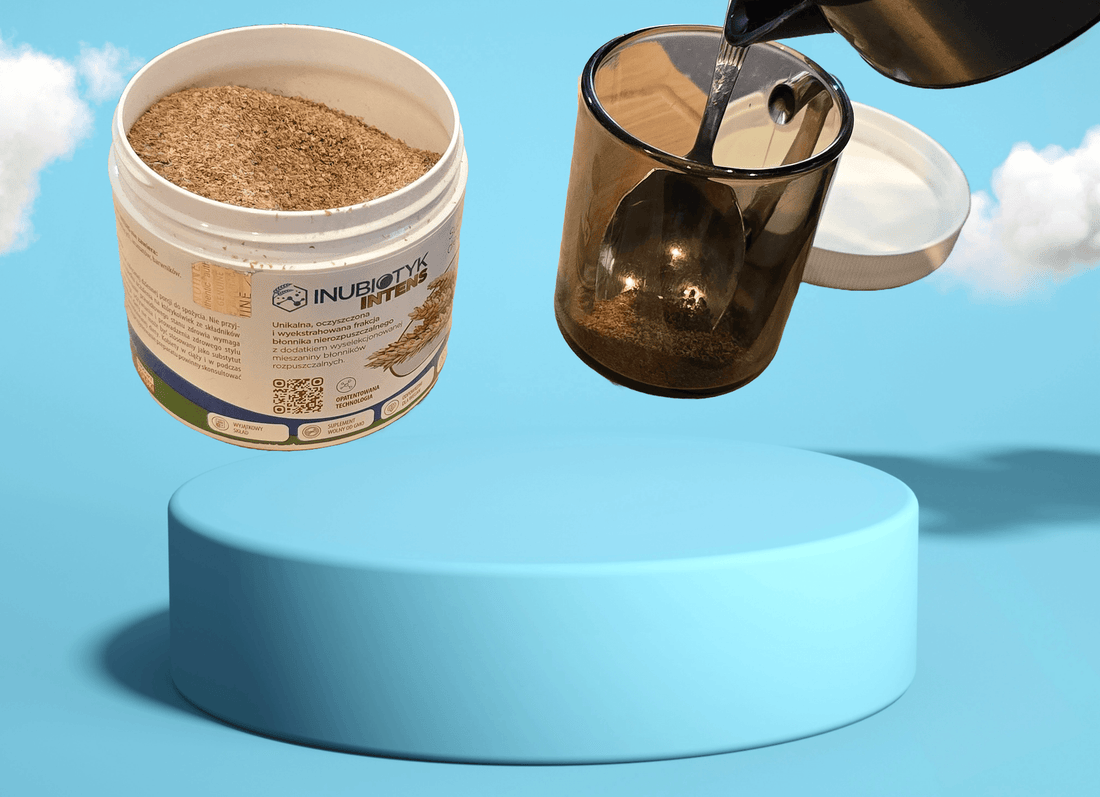
"Why Your Health Needs Fiber: Discover the Power of Supplements for Better Well-Being"
Share
Here's fiber in a nutshell...
The Benefits of Fiber Supplements – How They Affect Health and Why They’re Worth Taking.
Fiber is an often underrated component, yet it plays a crucial role in maintaining health and overall well-being. It’s a type of carbohydrate that the body doesn’t digest and passes through the digestive system almost unchanged. Despite this, fiber’s impact on our body is substantial, and an adequate intake is one of the fundamental elements of a healthy diet. When our diet doesn’t provide enough fiber, supplementation can be beneficial. Let’s explore the benefits of fiber and how it affects our health.
Why is Fiber Important?
1. Digestive Support and Regularity
Fiber helps maintain regular bowel movements and prevents constipation. Insoluble fiber swells in the intestines, increasing stool volume and speeding up bowel passage. Soluble fiber, on the other hand, forms a gel-like substance in the intestines, softening the stool and easing elimination. This makes fiber invaluable for those dealing with digestive issues and irregular bowel habits.
2. Blood Sugar Control.
Soluble fiber has the ability to slow down the absorption of sugars, which helps maintain stable blood glucose levels. This is beneficial for people with diabetes or insulin resistance who need to manage their blood sugar levels effectively. Fiber supplements, therefore, provide natural support in the prevention and control of metabolic disorders.
3. Reduction of Cholesterol Levels.
Fiber supplementation can also help lower levels of "bad" LDL cholesterol. Soluble fiber binds cholesterol in the intestines, preventing it from entering the bloodstream. Thus, fiber helps reduce the risk of heart disease and atherosclerosis, which is especially important for people with elevated cholesterol levels.
4. Weight Loss Support and Satiety.
One of fiber’s greatest benefits is its ability to enhance the feeling of fullness, helping to control appetite. Eating fiber leads to slower digestion, keeping us feeling fuller for longer. This makes it easier to limit snacking and reduce calorie intake, supporting a healthy body weight.
5. Detoxification of the Body.
Fiber aids in the natural cleansing of the body from toxins, acting as a "broom" that removes undigested food remnants and waste products from the intestines. In this way, fiber supports the liver in toxin elimination and protects the body from harmful substances that can negatively impact health.
Fiber Deficiency – What Are the Consequences?
A lack of fiber in the diet can lead to numerous health problems. Fiber deficiency primarily causes digestive disorders, such as constipation, bloating, and irregular bowel movements. People who consume little fiber are also at higher risk of developing cardiovascular disease, type 2 diabetes, and obesity. Fiber deficiency can lead to increased cholesterol and blood sugar levels, which heightens the risk of metabolic disorders.
How to Choose the Right Fiber Supplement?
When choosing a fiber supplement, it’s essential to look at its composition – it should contain various types of fiber, both soluble and insoluble. It’s also wise to ensure that the supplement is free from artificial additives and chemicals. Fiber supplements can be easily incorporated into a daily diet.
Summary.
Fiber is a key component that should be part of everyone’s diet, and regular intake can bring numerous health benefits. It helps not only in maintaining proper digestion but also in controlling weight, blood sugar levels, and cholesterol. If your diet doesn’t provide sufficient fiber, supplementation can be a great support.
Check out our product.
https://mj-4u.com/products/inutobiotyk-intense
